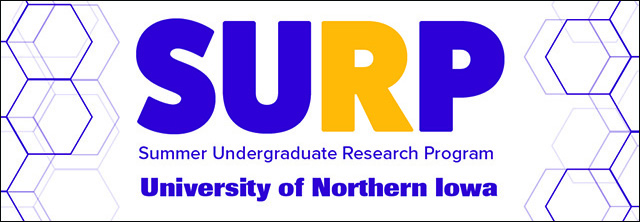
2023 Summer Undergraduate Research Program (SURP) Symposium
Location
ScholarSpace, Rod Library, University of Northern Iowa
Presentation Type
Open Access Poster Presentation
Document Type
poster
Keywords
Smoke--Forecasting;
Abstract
Wildfire smoke can reduce visibility and affect human health. Particulate matter with a diameter smaller than 2.5μm from wildfire smoke can travel through the respiratory tract to the lungs and enter the bloodstream. PM2.5 can be especially harmful to individuals with lung conditions such as asthma, chronic bronchitis, emphysema, and COPD, as well as infants and adults over sixty- five. This project uses NOAA’s Hybrid Single-Particle Lagrangian Integrated Trajectory (HYSPLIT) model to forecast the transport and dispersion of particulate matter using meteorological files, wildfire location, burning areas, and starting time. Forecast data of the HYSPLIT model can be verified against hourly observation data to measure accuracy. Forecast models like HYSPLIT help notify individuals at risk in advance.
Start Date
28-7-2023 11:00 AM
End Date
28-7-2023 1:30 PM
Event Host
Summer Undergraduate Research Program, University of Northern Iowa
Faculty Advisor
Alexa Sedlacek
Department
Department of Earth and Environmental Sciences
Copyright
©2023 Kevin Du and Dr. Alexa Sedlacek
File Format
application/pdf
Recommended Citation
Du, Kevin and Sedlacek, Alexa, "Forecasting Wildfire Smoke Particulate Matter Using HYSPLIT Model" (2023). Summer Undergraduate Research Program (SURP) Symposium. 10.
https://scholarworks.uni.edu/surp/2023/all/10
Forecasting Wildfire Smoke Particulate Matter Using HYSPLIT Model
ScholarSpace, Rod Library, University of Northern Iowa
Wildfire smoke can reduce visibility and affect human health. Particulate matter with a diameter smaller than 2.5μm from wildfire smoke can travel through the respiratory tract to the lungs and enter the bloodstream. PM2.5 can be especially harmful to individuals with lung conditions such as asthma, chronic bronchitis, emphysema, and COPD, as well as infants and adults over sixty- five. This project uses NOAA’s Hybrid Single-Particle Lagrangian Integrated Trajectory (HYSPLIT) model to forecast the transport and dispersion of particulate matter using meteorological files, wildfire location, burning areas, and starting time. Forecast data of the HYSPLIT model can be verified against hourly observation data to measure accuracy. Forecast models like HYSPLIT help notify individuals at risk in advance.



Comments
High school participant in UNI's Summer Undergraduate Research Program (SURP).